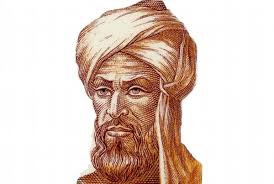Muhammad ibn Musa al-Khwarizmi: The Father of Algebra

The technologically advanced world in which we reside is punctuated by the efforts and thinking of philosophers and mathematicians from all around the world. One of the most notable names on this list is Muhammad ibn Musa al-Khwarizmi. He was a cornerstone of the world of algebra, whose efforts have left a neverending mark on the discipline. Flourishing in the 9th century during the Islamic Golden Age, Al-Khwarizmi's seminal works transcended cultural and temporal boundaries, laying the foundational principles of algebra that underpin modern mathematics. By merging the rigorous logic of Greek mathematics with the computational techniques of Hindu scholars, Al-Khwarizmi created a comprehensive mathematical framework that would be further developed by subsequent generations of mathematicians.
This article delves into the brief history of Al-Khwarizmi’s life and his contributions to the world of mathematics.
A Brief History of Al-Khwarizmi
Muhammad ibn Musa al-Khwarizmi, born around 780 AD in the region of Khwarazm (modern-day Uzbekistan), was a pioneering mathematician, astronomer, and geographer during the Islamic Golden Age. He spent much of his life in Baghdad, where he worked at the House of Wisdom, a renowned centre for scholarly research and learning. Al-Khwarizmi's diverse interests led him to write influential texts not only on mathematics but also on astronomy and geography. His most famous work, Kitab al-Jabr wal-Muqabala, introduced the basic principles of algebra, a term derived from the Arabic word "al-jabr." This book provided systematic solutions to linear and quadratic equations, blending ideas from various cultures and laying the groundwork for future mathematical developments. Al-Khwarizmi's contributions stretch far beyond his writings; his role in the House of Wisdom helped disseminate knowledge across the Islamic world and beyond, cementing his legacy as one of the most influential scholars of his time.
Contributions to Algebra
Muhammad ibn Musa al-Khwarizmi's most notable contribution to mathematics is his groundbreaking work in algebra, detailed in his seminal book Kitab al-Jabr wal-Muqabala (The Compendious Book on Calculation by Completion and Balancing). Al-Khwarizmi's approach was revolutionary for its time, as he provided clear and logical steps to find solutions, making complex problems more accessible. He used simple, practical examples to demonstrate these methods, laying the foundation for what would become a fundamental branch of mathematics. The term "algebra" itself is derived from the Arabic word "al-jabr," reflecting the lasting impact of his work.
Al-Khwarizmi's contributions went beyond merely solving equations; he also introduced the concept of balancing equations, which is essential in modern algebra. By introducing the idea of moving terms from one side of an equation to the other, he established a method for isolating variables and finding their values. This concept of balancing and manipulating equations remains a core principle in mathematics today. Additionally, Al-Khwarizmi's work included detailed descriptions of arithmetic operations and the use of zero, which he adopted from Hindu mathematics. His integration of these concepts helped standardize mathematical notation and methods, influencing scholars across the Islamic world and Europe.
Legacy and Influence
The influence of Al-Khwarizmi's work on algebra extended far beyond his lifetime. His texts were translated into Latin in the 12th century, significantly impacting the development of mathematics in medieval Europe. Scholars such as Fibonacci drew upon Al-Khwarizmi's work, further spreading his methods and ideas. The clarity and systematic approach of his writings allowed for the continued evolution of algebra, making it a critical tool in various fields, from science and engineering to economics and beyond. Al-Khwarizmi's pioneering contributions laid the groundwork for countless mathematical advancements, cementing his legacy as the "father of algebra" and a key figure in the history of mathematics.
Conclusion
In conclusion, Muhammad ibn Musa al-Khwarizmi's pioneering work in algebra represents a cornerstone of mathematical thought that has shaped the development of the discipline for centuries. His systematic approach, detailed in Kitab al-Jabr wal-Muqabala, introduced fundamental principles that not only solved equations but also revolutionized how mathematics was taught and applied. By merging knowledge from diverse cultures and integrating concepts like balancing equations and the use of zero, Al-Khwarizmi created a framework that profoundly influenced both Islamic and Western mathematics. His legacy endures through the continued relevance of algebra in solving complex problems across various fields. As a scholar who bridged cultures and eras, Al-Khwarizmi's contributions remain a testament to the enduring power of intellectual exchange and innovation in advancing human knowledge.
Similar Post You May Like
-

CFCs, HFCs and their long, troubled history
At its peak, the ozone hole covered an area 7 times larger than the size of Europe, around 29.9 million km2, and was rapidly expanding
-

The Origin of Universe: Deciding point where it all began!
Let us unravel and surf through the ideas throughout ages to understand what the universe and its origin itself was to its inhabitants across history.
-

The Artemis Program
Inspired by the Greek goddess of the Moon, twin sister to Apollo, the artimis program was named on 14 May 2019 by Jim Bridenstine.







